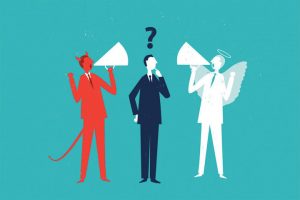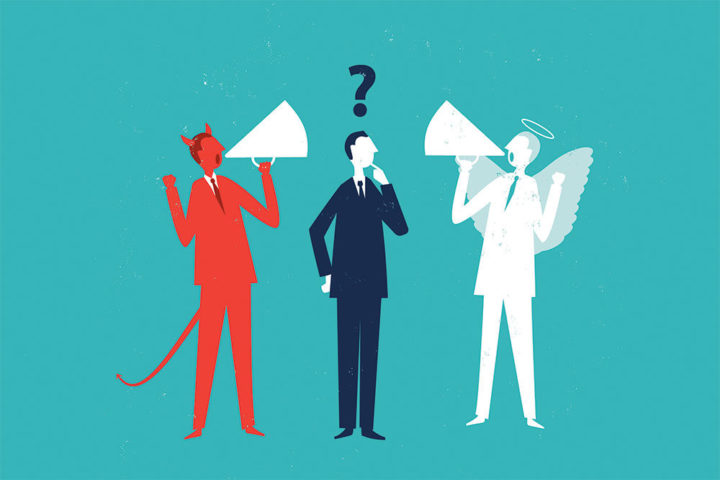Humanity is not innocent, the embodiment of evil changed multiple times but we all have a piece of it in the deep oceans of our souls’. It shows up its face in some people more often however every mortal self is eventually possessed by their own evil side. Still, do people born this way?
Whether humans are born good or evil has been debated by philosophers for centuries. Aristotle argued that morality is learned, and that we’re born as “amoral creatures” while Sigmund Freud considered new-borns a moral blank slate. Anyone who has read “Lord of the Flies” will expect children to be fully-fledged sociopaths just waiting to be freed from their adult-imposed shackles to start a cult and brutally attempt to kill each other.

Maybe the two most famous opposing views on this debate are those of Thomas Hobbes and Jean-Jacques Rousseau. Hobbes describes humans as ‘nasty’ and ‘brutish’, needing society and rules to reign in their instincts in order to thrive; later Rousseau openly criticised him, arguing instead that man would be gentle and pure without the corruption of greed and inequality caused by the class system imposed by our society.
Recent developmental psychology studies show there may be some natural “good” in humanity (or, to be more technical, that at least kids are capable of passing moral judgements at an earlier age than previously thought).
A 2017 study from Kyoto University had a similar approach and findings to the puppet study, seemingly confirming these results. Children as young as six months were shown videos featuring three Pacman-like characters, called ‘agents’: a ‘victim’, a ‘bully’ bumping aggressively against the victim and squashing it into a wall, and a ‘third party’ agent. The third-party agent would sometimes intervene to help the victim by putting itself between the victim and the bully, and would sometimes flee instead. After watching the video, children had to choose their preferred character and most chose the intervening third-party agent who had tried to help the victim.
Other studies h ave also shown babies exhibit altruistic behaviour, like the ‘Big Mother Study’ from Harvard, where infants who didn’t know they were being observed still acted kind and were helpful to others, suggesting that this isn’t just a learned behaviour to avoid punishment or scrutiny.
ave also shown babies exhibit altruistic behaviour, like the ‘Big Mother Study’ from Harvard, where infants who didn’t know they were being observed still acted kind and were helpful to others, suggesting that this isn’t just a learned behaviour to avoid punishment or scrutiny.
There are different results from other studies, clearly. Many people believe that we were born without evil, then we learn it from our surroundings, however good and evil are relative concepts. To be honest I believe that people are born with the desire to do things that benefits them. This also might bethe reason that children are mostly kind in those studies. The particular reason for this situation is that kids really don’t mind when they’re being nice. There is no loss for being nice when you are a kid. But when you grow up, people will try to benefit from you. That is the time that we grow up and realize that being nice is just not enough.

